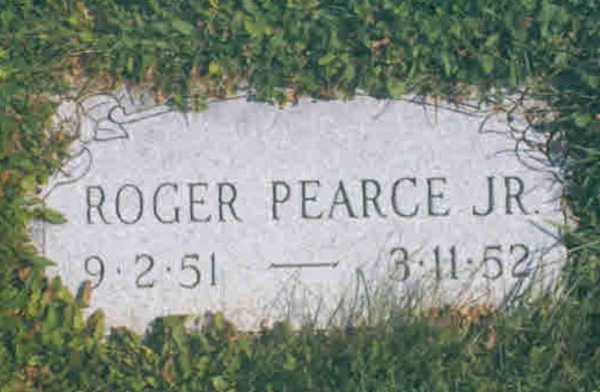In defense of the team: What basketball and law practice have in common

Susan Smith Blakely.
March Madness is over for one more year, and I will miss it. It is not as if I know a lot about basketball, and I can hear my son say, “Mom, why are you writing about basketball?” He knows I never played the game, and Title IX came much too late for me. But that does not keep me from being a devoted fan.
I not only love watching the best of college basketball, but I also love the memories. When our kids were young, we scheduled our spring break getaways around March Madness whenever possible.
Wherever we found ourselves for dinner after a day on the slopes or at the beach, there needed to be a TV tuned to the tournament games. March Madness reigned supreme in our family.
But I also love March Madness for the pure enjoyment of the game. I like watching young athletes develop and the devotion to teamwork demonstrated by players at that level.
I especially enjoy watching the setup for the dramatic plays. Only one player gets to take the winning shot, but the pass can be just as important as the shot itself. What basketball enthusiast can forget Christian Laettner’s winning basket in the final seconds of the 1992 Elite Eight in Duke’s win over Kentucky? Not as many may remember the precision inbound “length of the court” pass by Grant Hill to set up the shot, but it was teamwork at its finest.
I also delight in seeing college players come off the court at the end of the game and embrace each other and their coaches, no matter whether they won or lost. They understand instinctively that it is a team effort that requires both celebration and comfort.
The importance of teamwork for lawyers
Teamwork is equally important among lawyers. In law practice, teamwork means not dominating the conversation and learning to listen. It means having respect for the ideas of others. It means being reliable and having the backs of your colleagues. It means being good for your word. It means working as hard as necessary to get the job done, even when that requires making the coffee or fixing the printer during “down to the wire” trial prep.
Teamwork means making sacrifices and putting the needs of the team before personal gain. There is no place for prima donnas on a winning team, and team members can spot colleagues who are out for personal glory in a heartbeat.
Most seasoned lawyers have examples of the sacrifices they have made for the team. Between my husband and me, our sacrifices as practicing lawyers include too many canceled vacations (with two-for-one tickets to Europe on one occasion), countless “working” vacations, failed sabbaticals and missing our daughter’s 6th birthday party. Work can so easily get in the way of our personal lives, and we try to avoid that as much as possible. But sometimes we just have to take one for the team.
Research demonstrates that the team approach yields improved results, and the best decisions are reached by diverse teams with cooperative approaches to problem-solving and best practices.
Teamwork also improves morale by promoting a collective sense of ownership and responsibility for decision-making; this approach builds trust and fosters relationships to allow colleagues to work through disagreements. And, finally, teamwork encourages creativity and innovation.
The reality of practice
Theory and practice can play out differently in many law firms and other legal spaces, however. Lawyers might instead encounter: 1) the bully who never learned to listen and thinks he or she knows it all; 2) the screamer who demeans and belittles and chips away at the confidence of others; or 3) the lawyer who throws things in fits of anger and issues threats, including the intention to inflict bodily harm—which I have heard about on one occasion. Knowing the offending lawyer, I did not doubt it for a minute.
Most lawyers also have experienced the blocker, who would rather refuse help to a colleague than advance the team. As an associate in a law firm many years ago, I discovered what I considered to be a salient fact about the case we were preparing for trial. I was excited about the discovery and what it could mean for our client, and I went straight to the partner’s office to tell him about it.
His reply was, “Oh, I know that, but I did not tell you because you didn’t ask the right question.” So, I had labored for hours and days—and likely weeks and months—without that critical information, and the client had paid dearly for the gamesmanship.
These bad actors typically are in power positions at law firms. They are the “big money” men and women who, as rainmakers, put their organizations at the top of the list of “go-to” firms. They get the biggest pieces of the profit pies, and they are allowed to operate with impunity for the sake of power and greed. They are toxic, and having them around undermines morale and threatens the future of the organization.
And, sadly, it only takes one lawyer in a position of leadership and power to create a negative culture that spreads like a cancer through an organization.
The challenge
So the question becomes, what are we doing about it? Are we going to make it clear that this kind of behavior is not OK and that it damages the team? Are we going to establish organizational codes of conduct and stick to them? Are we going to put a stop to this kind of behavior and punish it?
It should be simple. We are professionals who have codes of conduct and ethical considerations to keep us in line for the benefit of our adversaries, for the benefit of the court, and for the benefit of our clients.
But what about our colleagues? Why should it be the Wild West where they are concerned? Why should the bad apple be able to infect the team and do damage to organizations and careers?
This brings me back to March Madness. There is not a coach in a successful college basketball program who would tolerate behaviors that undermine the team. The punishment would be relegation to the bench or worse, sending a loud and clear message that the repugnant behavior was intolerable.
And law practice leaders should learn from this. They should want to promote behaviors that will develop young lawyers in healthy ways, create positive role models, become industry leaders for all the right reasons and put their firms in the winner’s circle.
Susan Smith Blakely is a former partner, law career counselor and author of the Best Friends at the Bar book series for female lawyers. Her most recent book is What Millennial Lawyers Want: A Bridge from the Past to the Future of Law Practice.



